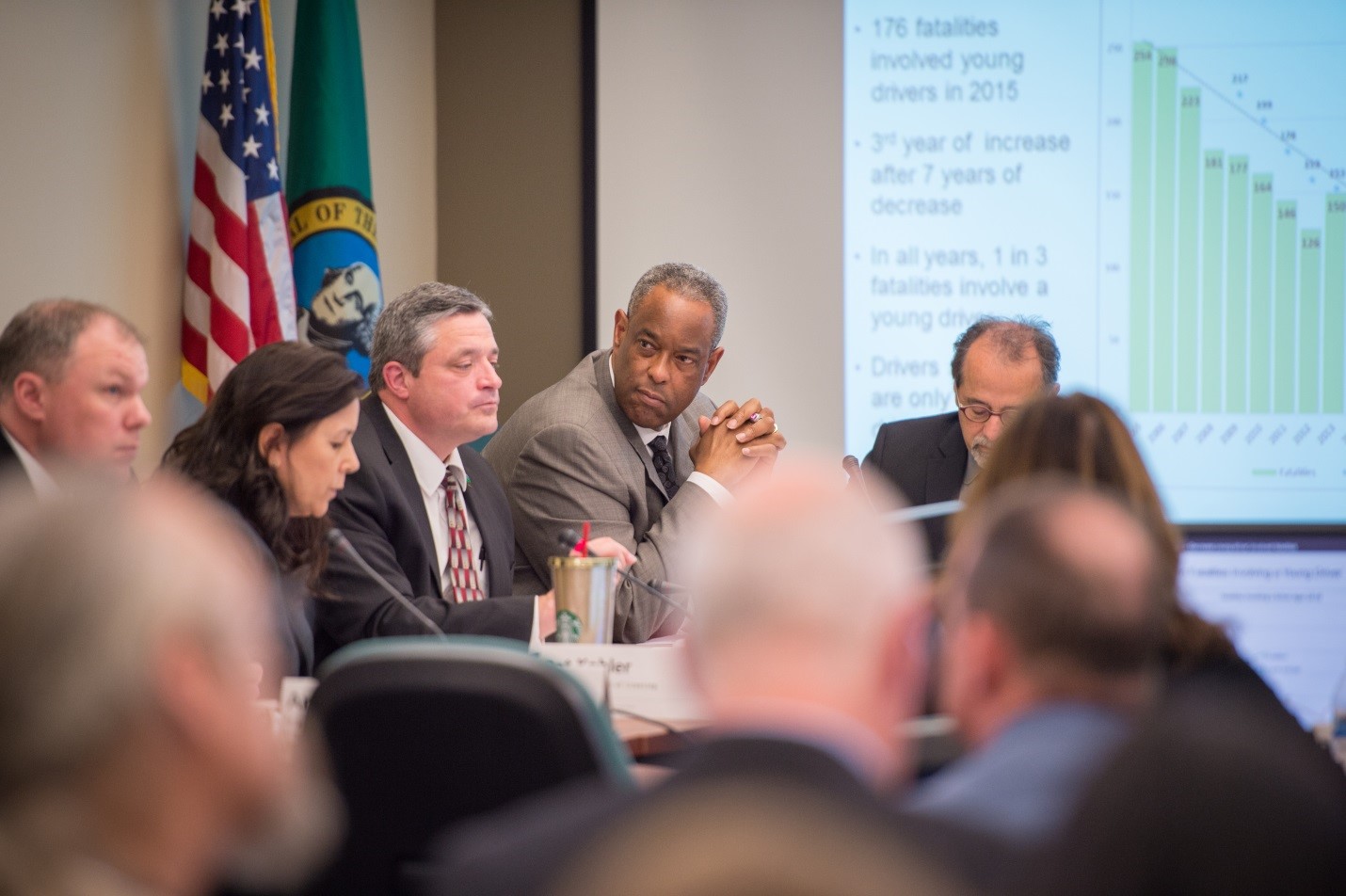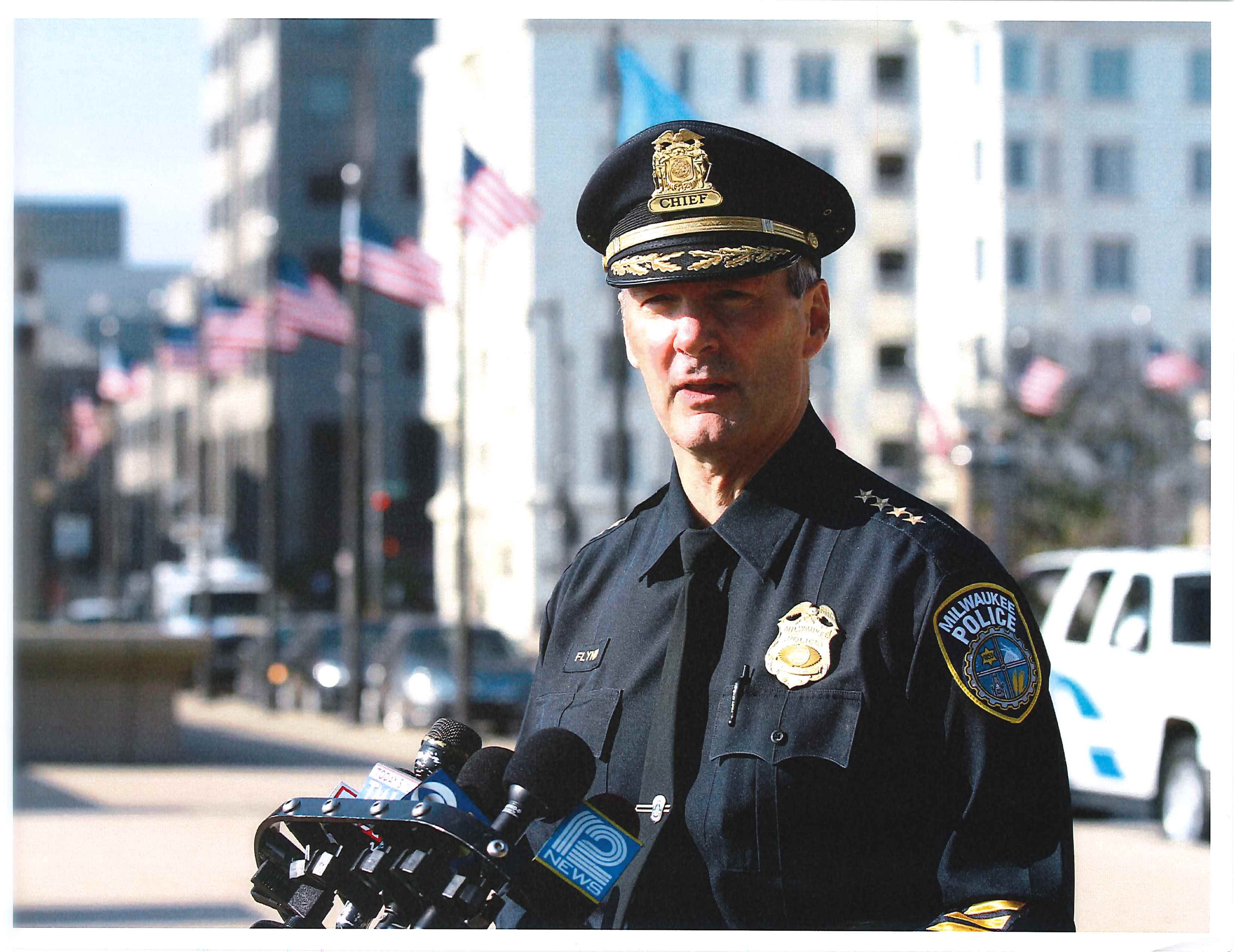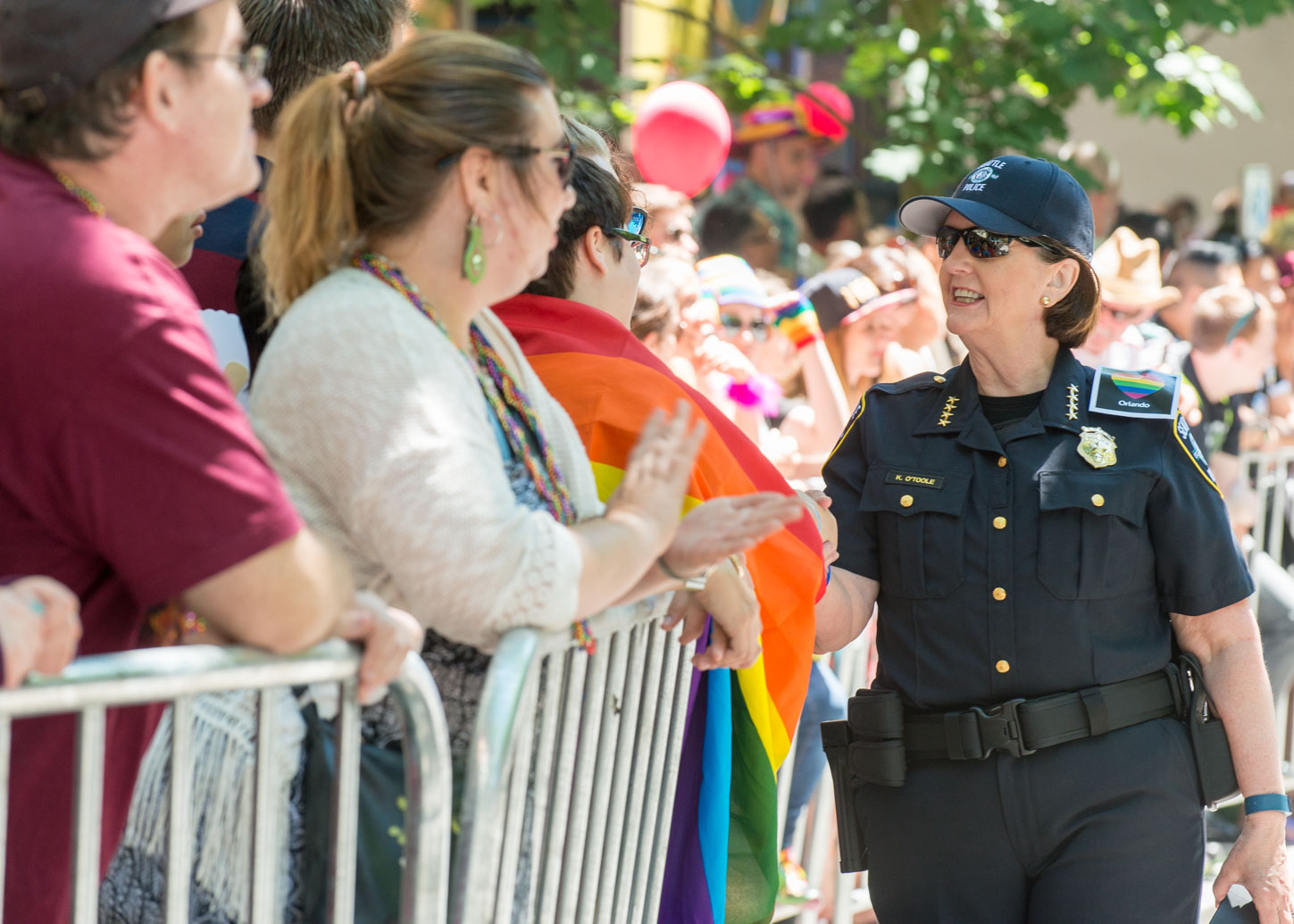Meet the Leadership Blog Series: Becoming more involved in IACP
The IACP Board of Directors is comprised of the IACP Executive Board as well as 33 law enforcement leaders appointed by the IACP President. The members of the Board of Directors represent agencies large and small around the globe and govern the IACP. In the IACP’s Meet the Leadership Blog Series, the IACP will feature brief profiles of the 33 appointed members of the Board of Directors.
Name: John R. Batiste
Title: Chief
Agency: Washington State Patrol
Year Joined the IACP: 1995
Reason for Going into Law Enforcement: Early on in my life, my parents and extended family members modeled and demonstrated a great deal of respect for law enforcement. A member of our family also went on to be a police officer in the small town where I grew up.
First Heard about IACP: My chief at the time told me about the organization and he instructed me to join and become an active participant.
Becoming More Involved in IACP: I began to learn about, and personally witness, the many good things that were happening within IACP. I felt becoming more active would be beneficial for my organization's growth, while also providing an opportunity to share my agency's experience with others.
Favorite Part About Being in Law Enforcement: My favorite part of being in law enforcement is helping people that I encounter everyday as well as those I'm privileged to work with.
The Most Challenging Part of Law Enforcement: The most challenging things that I have to deal with involve fiscal constraints along with staffing shortages caused by recruitment and personnel retention issues.
One Piece of Advice for the Leaders of Tomorrow: My advice to leaders of tomorrow is to become and remain relevant to your agency and the community that you live and work in. Always demonstrate a willingness to listen to, and be able to see things from the angle of others, while adapting to a changing environment. Remember, “one” of us isn't as smart as “all” of us.
Name: Edward Flynn
Title: Chief of Police
Agency: Milwaukee, Wisconsin, Police Department
Year Joined the IACP: 1988
Reason for Going into Law Enforcement: I was attracted to law enforcement by the opportunity to do important work that mattered to people in need and neighborhoods at risk.
First Heard about IACP: I learned of IACP as a rookie officer through Police Chief Magazine. I subscribed to stay informed.
Becoming More Involved in IACP: My first chief’s job was in Braintree, Massachusetts and I was selected through a process conducted by the IACP executive search. I was impressed by its professionalism and wanted to get more involved.
Favorite Part About Being in Law Enforcement: Developing future leaders.
The Most Challenging Part of Law Enforcement: Partisan politics.
One Piece of Advice for the Leaders of Tomorrow: Accept every assignment as a learning opportunity. READ! Certainly stay current with professional developments, but read histories and biographies as they reveal that the challenges of leadership transcend disciplines and time periods.
Name: Kathleen O’Toole
Title: Chief of Police
Agency: Seattle, Washington, Police Department
Year Joined the IACP: 1987
Reason for Going into Law Enforcement: Believe it or not, I came into law enforcement on a dare. I was in my second year of law school, and thought it would be interesting to see the practice of law from a different perspective. I joined the Boston, Massachusetts, Police Department and loved it. Little did I know it would turn into a career.
First Heard about IACP: My mentor, Bill Bratton, encouraged me to join the IACP and attend a training course.
Becoming More Involved in IACP: IACP has many opportunities to build valuable networks and exchange knowledge, which is why I became more involved.
Favorite Part About Being in Law Enforcement: I believe that policing is more than just a job—it’s a vocation. I enjoy it because it gives me the chance to make a difference in our community. A lot of people don’t get to see what policing is really about—on television, they see car chases and gun fights. Law enforcement is certainly important, but we spend the majority of time providing services to people in need—even delivering babies and saving lives along the way.
The Most Challenging Part of Law Enforcement: Community trust is essential, but can be a challenge maintaining —it’s very fragile. We know that one incident can undermine relationships we’ve worked hard to build.
One Piece of Advice for the Leaders of Tomorrow: Be authentic and go where the truth takes you, particularly in challenging situations. Stand up, tell the truth, and take responsibility. Your community and your officers will appreciate it, and it will reinforce your organization’s legitimacy.
Name: John R. Batiste

Title: Chief
Agency: Washington State Patrol
Year Joined the IACP: 1995
Reason for Going into Law Enforcement: Early on in my life, my parents and extended family members modeled and demonstrated a great deal of respect for law enforcement. A member of our family also went on to be a police officer in the small town where I grew up.
First Heard about IACP: My chief at the time told me about the organization and he instructed me to join and become an active participant.
Becoming More Involved in IACP: I began to learn about, and personally witness, the many good things that were happening within IACP. I felt becoming more active would be beneficial for my organization's growth, while also providing an opportunity to share my agency's experience with others.
Favorite Part About Being in Law Enforcement: My favorite part of being in law enforcement is helping people that I encounter everyday as well as those I'm privileged to work with.
The Most Challenging Part of Law Enforcement: The most challenging things that I have to deal with involve fiscal constraints along with staffing shortages caused by recruitment and personnel retention issues.
One Piece of Advice for the Leaders of Tomorrow: My advice to leaders of tomorrow is to become and remain relevant to your agency and the community that you live and work in. Always demonstrate a willingness to listen to, and be able to see things from the angle of others, while adapting to a changing environment. Remember, “one” of us isn't as smart as “all” of us.
Name: Edward Flynn

Title: Chief of Police
Agency: Milwaukee, Wisconsin, Police Department
Year Joined the IACP: 1988
Reason for Going into Law Enforcement: I was attracted to law enforcement by the opportunity to do important work that mattered to people in need and neighborhoods at risk.
First Heard about IACP: I learned of IACP as a rookie officer through Police Chief Magazine. I subscribed to stay informed.
Becoming More Involved in IACP: My first chief’s job was in Braintree, Massachusetts and I was selected through a process conducted by the IACP executive search. I was impressed by its professionalism and wanted to get more involved.
Favorite Part About Being in Law Enforcement: Developing future leaders.
The Most Challenging Part of Law Enforcement: Partisan politics.
One Piece of Advice for the Leaders of Tomorrow: Accept every assignment as a learning opportunity. READ! Certainly stay current with professional developments, but read histories and biographies as they reveal that the challenges of leadership transcend disciplines and time periods.
Name: Kathleen O’Toole

Title: Chief of Police
Agency: Seattle, Washington, Police Department
Year Joined the IACP: 1987
Reason for Going into Law Enforcement: Believe it or not, I came into law enforcement on a dare. I was in my second year of law school, and thought it would be interesting to see the practice of law from a different perspective. I joined the Boston, Massachusetts, Police Department and loved it. Little did I know it would turn into a career.
First Heard about IACP: My mentor, Bill Bratton, encouraged me to join the IACP and attend a training course.
Becoming More Involved in IACP: IACP has many opportunities to build valuable networks and exchange knowledge, which is why I became more involved.
Favorite Part About Being in Law Enforcement: I believe that policing is more than just a job—it’s a vocation. I enjoy it because it gives me the chance to make a difference in our community. A lot of people don’t get to see what policing is really about—on television, they see car chases and gun fights. Law enforcement is certainly important, but we spend the majority of time providing services to people in need—even delivering babies and saving lives along the way.
The Most Challenging Part of Law Enforcement: Community trust is essential, but can be a challenge maintaining —it’s very fragile. We know that one incident can undermine relationships we’ve worked hard to build.
One Piece of Advice for the Leaders of Tomorrow: Be authentic and go where the truth takes you, particularly in challenging situations. Stand up, tell the truth, and take responsibility. Your community and your officers will appreciate it, and it will reinforce your organization’s legitimacy.
